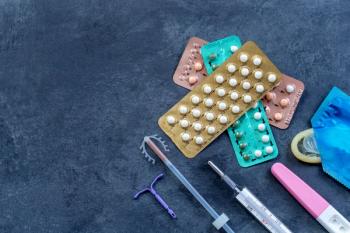
Pharmacy's Past: A Look Back At Inhaled Insulin
Let’s take a look back at 2006 when Exubera came to market for a very short time. I clearly remember the excitement building around this new inhaled form of insulin, which would surely become the new preferred treatment for diabetes. I still remember receiving Exubera in our order for the first time and expecting it to fly off the shelves. But after maybe dispensing one or two of these inhalers, they were gone.
What is the story behind this short-lived inhaled insulin?
Exubera was a combined effort by Aventis and Pfizer. It was an inhaled, short-acting insulin indicated for type 1 (in combination with long- or intermediate-acting insulin) and type 2 diabetes mellitus (in patients requiring insulin or in patients not adequately controlled on oral medications alone).
In 1925, the concept of insulin delivery directly to the lungs (pulmonary insulin) was initially explored. However, many difficulties were encountered as most inhaled insulin became deposited in the pharynx and never reached the lungs. Pfizer and Aventis worked with Nektar Therapeutics, a company that specialized in finding delivery solutions for various methods of administration. They developed Exubera, which was a rapid-acting, fine, dry powder insulin, developed with Nektar’s proprietary inhalation technology.1
With the benefits of no needles and more rapid entry into the bloodstream than with subcutaneous injection, Exubera was expected to help compliance in patients with diabetes.1
Exubera contained human insulin produced with recombinant DNA technology and was available in 1 mg or 3 mg. The drug was contraindicated in smokers or those who recently quit smoking due to a much higher absorption in these patients. It was also not recommended for use in those with underlying lung diseases.2
In clinical trials, more than 2,000 patients received Exubera, some for up to 5 years. Results suggested that Exubera was as effective as injected insulin and superior to oral medications in lowering glucose.1
When compared with patients who received only insulin injections, patients administered Exubera experienced significant lowering of fasting plasma glucose levels (measured before breakfast) and 2-hour postprandial glucose levels (measured after meals). Patients preferred using Exubera and were more satisfied with overall treatment. They demonstrated greater improvements in symptoms and cognitive function.1
However, despite its efficacy, concerns were raised about the safety of inhaled preparations and whether Exubera would compromise lung capacity or even damage lung tissue with long-term use. Although adverse events were similar between Exubera and control groups, there was an increased incidence of mild to moderate cough.1
Almost as quickly as it appeared, Exubera was withdrawn from the market in October 2007 after slow sales, as the product was not in favor with physicians/patients.3
References
- Drug Development Technology. Exubera Inhaled Insulin
https://www.drugdevelopment-technology.com/projects/exubera/ Accessed March 25, 2019. - US National Library of Medicine. Exubera. DailyMed.
https://dailymed.nlm.nih.gov/dailymed/drugInfo.cfm?setid=4e25a881-dfc3-44a2-9ede-49f7443776d8 Updated April 8, 2008. Accessed March 25, 2019.
Newsletter
Pharmacy practice is always changing. Stay ahead of the curve with the Drug Topics newsletter and get the latest drug information, industry trends, and patient care tips.























